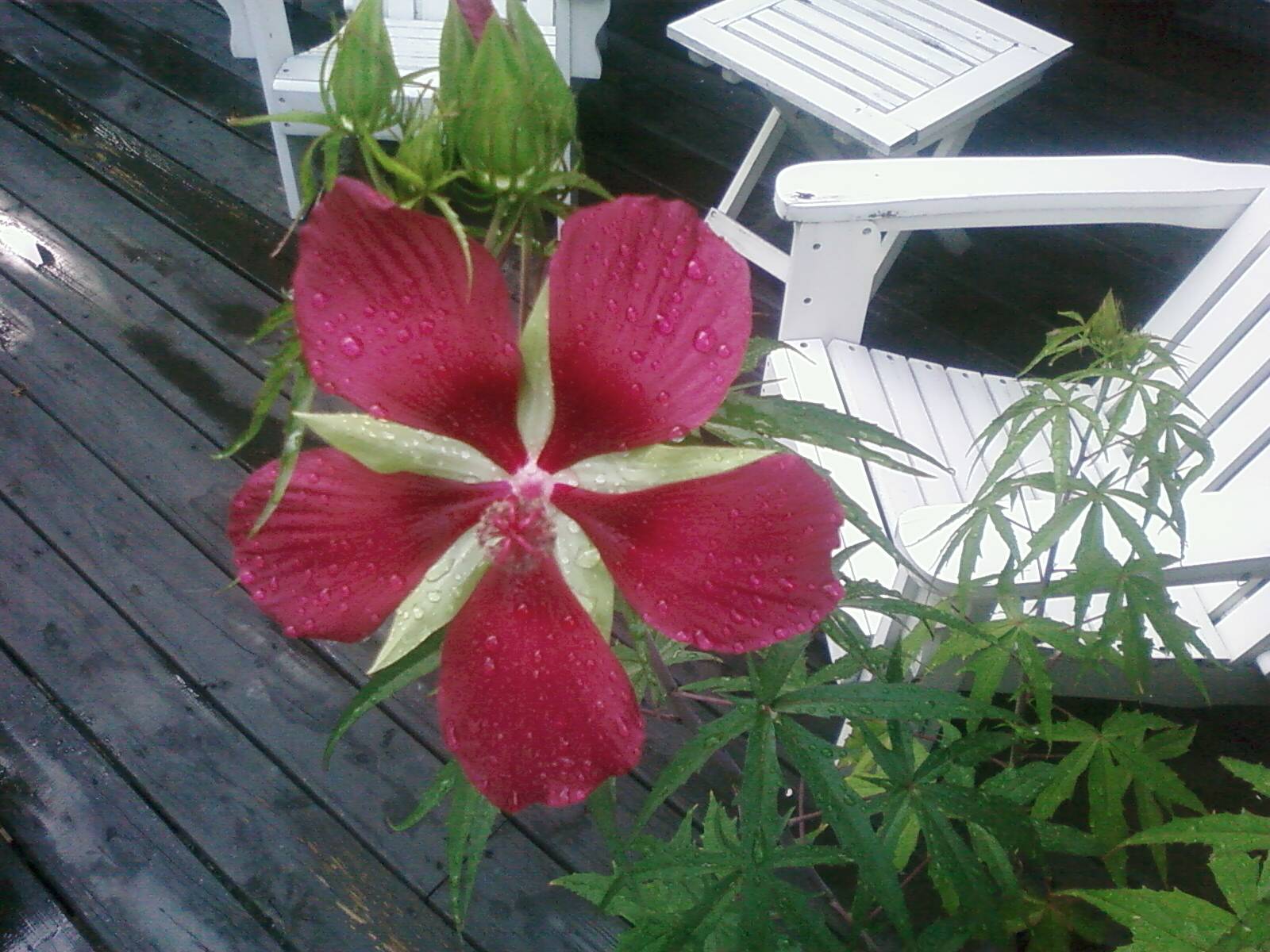Name that plant
Details:
-
Date Photo Taken
07 / 11 / 2012
-
Season Photo Was Taken
Summer
-
Region Photo Was Taken
Southeast
-
City
Lawrenceville
-
State
Georgia
-
Posted by
shepgrala
Notes:
This is a perennial, 3 to 5 feet tall, leaves look like marijuana but I was told it was not that.. whew!! It was given to me by a friend, but he didn’t know what it was, just that the flowers were pretty. Did not bloom first year. Blooms are on the top of the stalk



Comments
Lexie Unregistered says:
You are looking at a swamp hibiscus. Also known as the Scarlet Rose Mallow or Texas Star, the swamp hibiscus (Hibiscus coccineus) is native to the east coast of the U.S. ItÕs one of the most spectacular native plants, with incredible, large red flowers that naturally thrive in wetlands and ditches. Planting Zone: Swamp hibiscus grows in zones 7-10. Planting Habit: Swamp hibiscus is a large herbaceous perennial, so it dies completely down in winter and sprouts fresh each spring. Flowers: Swamp hibiscus blooms in mid to late summer through early fall. Each bloom only lasts a day or so, but they put on a successive show thatÕll keep you coming back each day to see whatÕs new. Size: Swamp hibiscus is unusually large for a perennial, growing up to 7-12 feet tall and 4-6 feet wide. The plants are tall and leggy, with five or more stems coming out of the ground. Growing Conditions: Swamp hibiscus do best in full sun and mildly acidic soil. Great for low-lying soggy areas or around water features but will grow in normal garden soil, too, as long as it gets plenty of water. Growing Tips: For a more compact and bushy plant, prune the first sprouts of the swamp hibiscus back to encourage branching. Or, simply plant at the back of the garden and allow it to reach its full height, supporting with stakes if needed. Once the swamp hibiscus has been killed by frost, cut the stalks down the ground and add them to your compost pile. Other Benefits: Swamp hibiscus is attractive to butterflies, hummingbirds, bees, and birds. ItÕs easy to grow from seed, and you can save the seeds for sharing. You can also propagate swamp hibiscus by division.
September 15th, 2012 at 12:12pm
Bobby Master Identifier says:
Hibiscus. http://www.flmnh.ufl.edu/butterflies/plants/scarlet_hibiscus.htm
July 13th, 2012 at 9:37am